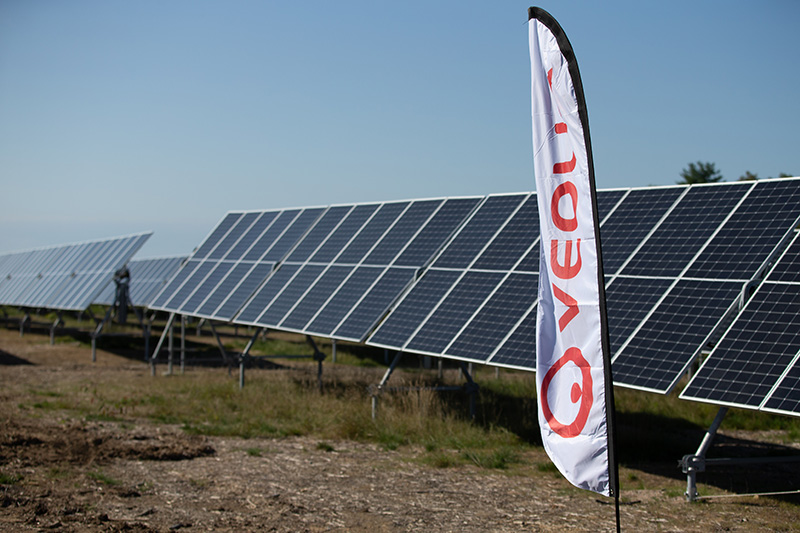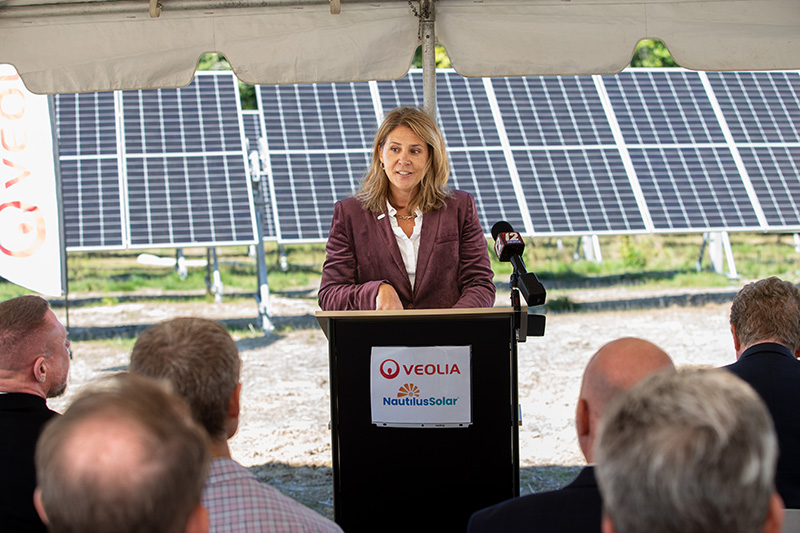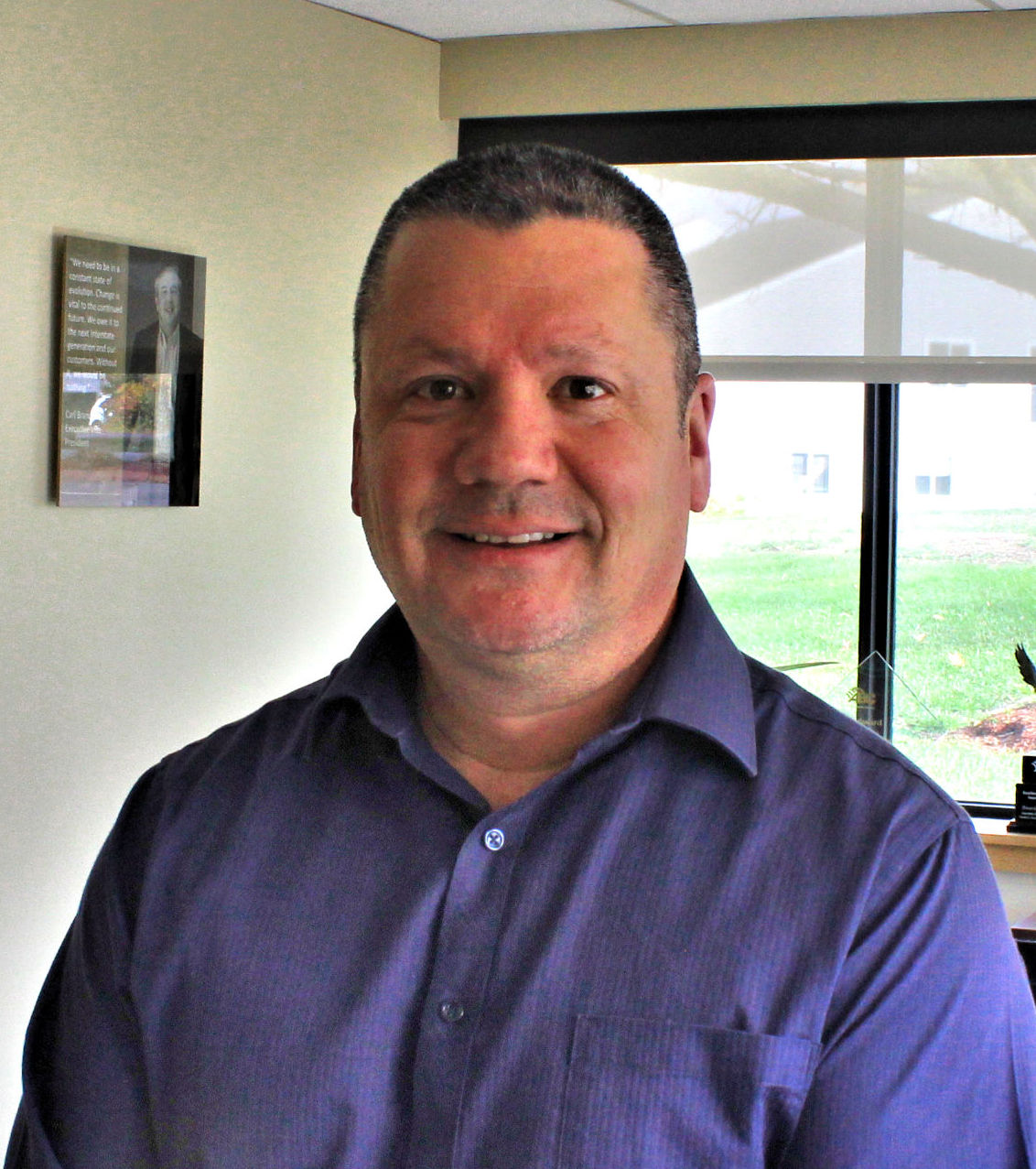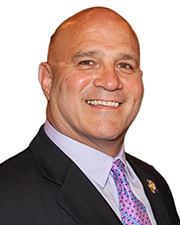Veolia and Nautilus Solar unveil
6.5MW solar power plant

Exeter, RI Two New England leaders in the development of sustainable energy solutions - Veolia and Nautilus Solar Energy (Nautilus) - unveiled a 6.5 megawatt (MW) solar installation named: “Exeter Mail.”
The installation is one of three that supplies renewable energy to the Rhode Island electric grid, in exchange for utility bill credits for regional housing authorities, lowering their operating costs and ultimately lowering energy prices for public housing residents. Announced in 2021, the construction of the project is now complete, and all three solar installations are supplying green energy to the Rhode Island electric grid.
The collaboration between PHARI, Nautilus and Veolia is a first of its kind in the nation encompassing multiple public housing authorities under a single renewable energy contract. The Exeter Mail installation is the largest of three contracted by the housing authorities.
Combined, the three sites exceed 13 MW, removing 4,800 metric tons of greenhouse gases annually, the equivalent of taking more than 1,000 cars off the road. The market value of the generation from the three projects will be distributed among nine housing authorities in Rhode Island (Providence, North Providence, Newport, Cranston, Smithfield, Warwick, Warren, Bristol and Lincoln) in the form of utility bill credits. The credits will generate a discount against prevailing electricity supply rates, which lowers the operating budgets of the housing authorities in a region with some of the highest energy costs in the U.S.[1], benefiting both taxpayers and public housing families.
 Located primarily in the towns of Exeter and Smithfield, the solar fields provide 20 million kilowatt hours annually. The projects are estimated to save over $35 million in energy costs over the next 20 years.
Located primarily in the towns of Exeter and Smithfield, the solar fields provide 20 million kilowatt hours annually. The projects are estimated to save over $35 million in energy costs over the next 20 years.
Nautilus has overseen the development, permitting and construction of the solar installation. The company will now look after the ongoing management, maintenance and performance for the life of the projects, estimated at 25 to 30 years.
Leveraging its deep knowledge of decarbonization, power optimization, and solar generation, Veolia was selected by PHARI to serve as a buy-side agent for the collaboration of housing authorities to manage the procurement effort, advise technically and manage the complexity of the vendor selection process.
The energy generated from the projects now feeds into the electric utility territory of Rhode Island Energy, a subsidiary of PPL Corporation. The completion of the Exeter Mail 6.5 MW field, the third of three that were contracted, marks the conclusion of this project.
Karin Hamel, president and CEO of Veolia’s Sustainable Industries and Buildings business said: “Veolia is proud to contribute to this transformative solar installation, which not only harnesses the power of renewable energy but also directly supports the well-being of thousands of low-income families in Rhode Island. This project aligns with Veolia’s GreenUp strategy. Producing local, low-carbon energy is a critical growth booster for accelerating ecological transformation. This project is a perfect example of how green energy can be used for good.”
Timberline Construction Corp. completes renovation for Notre Dame Long Term Care facility


It’s time to lead: Confronting mental health in construction - by David Watts

Ask the Electrician: How do I prepare my commercial building for a disaster?

Navigating tariffs and material uncertainty in today’s construction market - by Karl Ginand and Tiffany Gallo


.png)








.png)